Photographs: Reuters. Bhupesh Bhandari
There had been speculation that Prime Minister Manmohan Singh would announce, in his Independence Day speech, a new scheme called "Har Hath Mein Phone" (a phone in every hand) to give a handset with 200 minutes of talktime to every family that lives below the poverty line.
This would empower the poor and make economic growth – or whatever is left of it – more inclusive, went the logic. But most people saw it as a smart move by the Congress-led United Progressive Alliance ahead of the 2014 general elections.
One news report had suggested that the scheme did not find favour with the finance ministry, now led by P Chidambaram, because it would worsen the government's financial arithmetic. That's perhaps why the scheme didn't find mention in Prime Minister Singh's speech on Wednesday.
...
Hungry or not, BPL families to get a free phone!
Photographs: Reuters.
But it can be safely assumed that it has been delayed, not mothballed. There is enough time for the government to roll it out and extract political mileage in 2014.
Of course, the government is dead serious about it. On talking to various stakeholders, it emerges that the government expects the handsets to cost Rs 1,000 apiece. It will pay a subsidy of Rs 500 on each handset; so the poor have the option to buy it for Rs 500.
The talktime of 200 minutes will be provided by the service operators. Private operators don't want to be a part of it (more of that later); so it is likely that the services of state-owned MTNL (in Delhi and Mumbai) and BSNL (in the rest of the country) will be requisitioned.
...
Hungry or not, BPL families to get a free phone!
Photographs: Reuters.
What will be the subsidy bill? As there are nearly 70 million households below the poverty line, the handset subsidy would be Rs 3,500 crore and the talktime subsidy (which will be provided either by the government or the companies owned by it) would work out to Rs 1,400 crore.
This money is likely to come from the Universal Services Obligation fund, to which all service operators contribute.
It might be an election-time gimmick, but the government's argument of how a mobile phone helps economic growth is sound. Various estimates have established the link between telephone density and growth.
...
Hungry or not, BPL families to get a free phone!
Photographs: Reuters.
Telenor of Norway had, in 2008, commissioned Deloitte to study this correlation in six markets: Malaysia, Thailand, Bangladesh, Pakistan, Serbia and Ukraine.
It found that every 10 per cent increase in mobile penetration leads to 1.2 per cent growth in the gross domestic product.
It also enhances social inclusion by improving information flows, increasing work flexibility and taking business into hitherto under-serviced rural markets. All of that, and much more, holds true for India as well.
Thus, it has been observed that farmers with mobile phones normally get better prices for their produce, and small and tiny businessmen can improve their efficiency once they get onto the mobile network.
...
Hungry or not, BPL families to get a free phone!
And a lot of Indians still do not have mobile phones. Over 900 million SIM cards are in use in the country. But unique users are around 600 million - around 50 per cent of the country's population.
While the urban markets are saturated, semi-urban markets are 70 per cent penetrated and rural markets only 40 per cent.
The arguments in favour of the scheme, therefore, are strong. The challenge lies in its implementation. The beneficiaries may be tempted to sell the subsidised handset (it will come with 200 minutes of talktime, which is enough to last at least a month) and make a neat profit.
Or, given the rampant leakage from various government expenditure programmes, it is equally possible that a large number of these handsets will reach the markets directly - the supposed beneficiary will never even know that he has been sold/allotted one.
...
Hungry or not, BPL families to get a free phone!
Photographs: Reuters.
Also, once the poor household has run out of the free talktime, what does it do? Does it have the resources to buy talktime regularly? And is the distribution of recharge coupons so widespread that it is readily available to beneficiaries of this scheme in remote villages?
What about households and tribal hamlets that are yet to be electrified? (Prime Minister Singh said in his Independence Day speech that almost all villages in the country have been connected and every household will get electricity in five years' time.)
Also, all new mobile subscribers need to go through an elaborate security check; how will the government do it in the case of extremely poor families who often have no proof of identity and address?
...
Hungry or not, BPL families to get a free phone!
This is the reason private operators are cold to the scheme - not that the government has discussed it with them. (The service operators have sources in the highest echelons of government; they have activated them to find out what shape the scheme will take.)
They fear that a majority of these connections (the ones that stay with the intended beneficiary) will become dormant once the talktime is over, and the incremental business will be very small.
...
Hungry or not, BPL families to get a free phone!
That might still be all right in areas where they have the towers in place; in uncovered areas, where they need to put up towers, the business economics just doesn't work out.
The one-time capital cost of a tower is Rs 25 lakh, and it requires almost Rs 2.5 lakh every year to run it.
These costs are impossible to recover with such low-paying customers. Also, while the government wants to help rural empowerment with this scheme (some beneficiaries are likely to be in urban areas as well), the cause of rural telephony hasn't been helped by the high cost of spectrum (Rs 14,000 crore for start-up spectrum of 5 MHz) fixed by the government. But then, it is soon going to be election time.

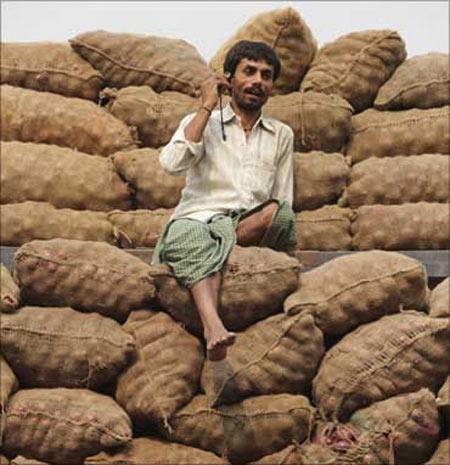
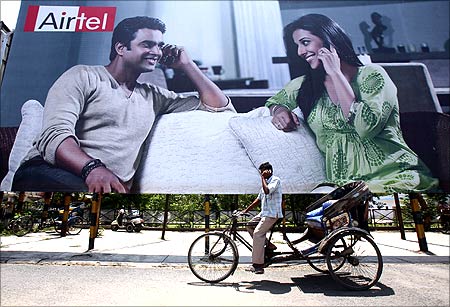
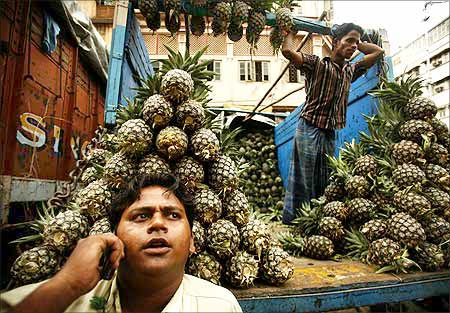
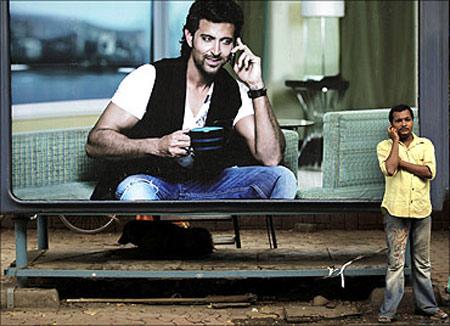
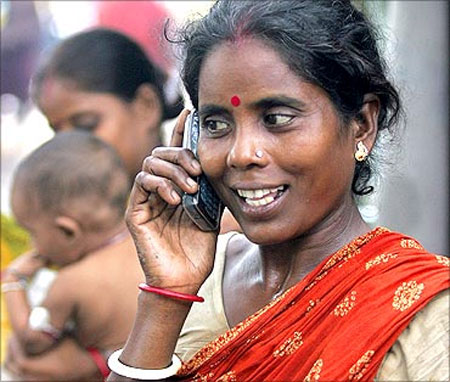
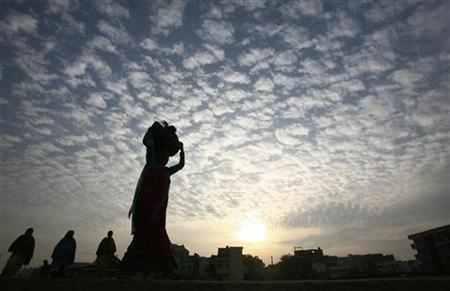
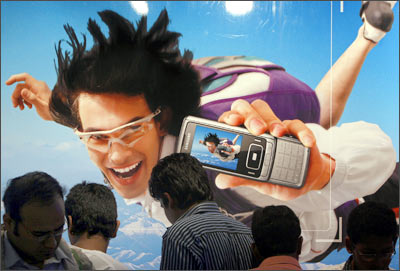
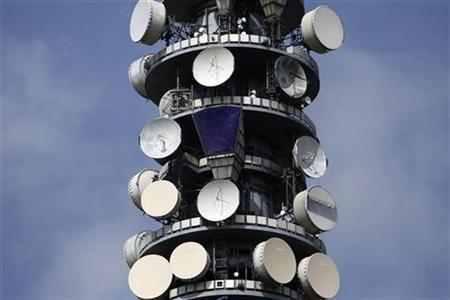

article